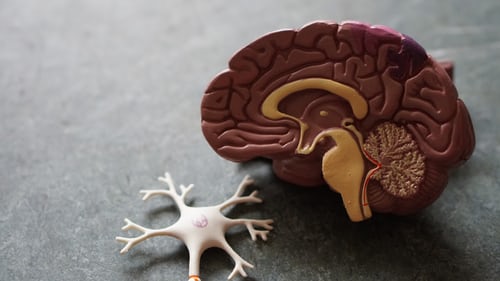Can I share with you quickly something which often emerges in my consults with new clients?
It’s that they will admit to a slight (or in some cases very acute) embarrassment at the thought of getting better from this thing that has dominated their life, through the use of healing their mind-body connection, rather than through the use of a pill, supplement, elimination diet or other more tangible medical procedure.
People feel the need for an underlying biological “reason” to have an illness, or to be experiencing the symptoms or pain they are, be that reason genetic, viral, bacterial or the result of physical injury it doesn’t matter, they need something to give credibility that what they are experiencing is serious and real.
Apparently, your mind just isn’t serious and real enough.
I can confirm the “it’s all in your mind” stigma is alive and well.
It doesn’t matter how many times this happens it still surprises me because working in medical hypnotherapy I have become accustomed to a world where the mind-body connection is a given.
I’ve seen it too many times, I’ve experienced it myself and I’ve read more than enough scientific papers to know it’s no longer a controversy, not even in the most mainstream fields of science.
It’s a fact, there exists an undeniable link between our thoughts, feelings and how our body responds in disease and wellness.
Otherwise known as the mind-body connection, or for those who want to get more technical about it (for your continued Googling later tonight), psychoneuroimmunology.
Psychoneuroimmunology is the branch of medicine which studies and attempts to understand the ability our minds have to affect our health through modulatory effects on the nervous and immune system.
This connection is exactly what I am going to explore in todays post, so without further ado I present to you a rough overview of a fascinatingly intricate topic that profoundly changed my life long before I knew any of the names or reasons why and which I hope you allow to change yours; the mind-body connection.
The Same Thing

Physiologically the emotional, nervous and immune systems are not separated at all.
They are the same thing.
We may divide our bodies up in terms of function, histology, location or any number of other criteria in order to make it easier to understand and specialise in this area or that but essentially, it is all a part of the same system, the human being.
Which means if we want to come anything close to optimal health they cannot truly be separated or addressed purely in isolation.
The Mind-Body Connection at Work

Just for a moment think back to the last time you got a fright, the last time something startled, took you by surprise or scared you.
What happened in your body?
Did you feel immediately alert? Maybe you felt your heart race, jumped in the air slightly, felt butterflies in your intestines, heard your blood pound in your ears or felt your muscles tense up.
This is a perfect example of the mind-body connection at work.
What’s Happening?

What’s happening within your body as you get a fright is your body is automatically preparing for either a fight or flight response.
When your brain registers “stress” (of which a fright comes under this category but so does financial stress, loneliness, sleep deprivation, exam stress, fighting with your spouse and so on) it activates your autonomic nervous system, in particular your sympathetic nervous system.
This happens far quicker than your conscious mind can decide whether or not this fight or flight response is necessary and herein is why this response both works so well and can cause us so much turmoil, because it is immediate, unconscious and out of your control. You don’t chose or coordinate it.
If it took the extra time for your conscious mind to analyse all the information and come up with a “yes, we should be worried and run” or a “no, that was a false alarm and there is no need to run” then in the wild (where this stress response evolved) if it was a situation which merited the response you’d be dead. Your conscious mind is just too slow.
Instead your mind is much cleverer than this and the 95% of your brain which is unconscious and operates out of your direct control then goes on to activate the hypothalamus-pituitary-adrenal axis (or HPA axis).
The activation of which immediately sends a cascade of hormonal signals beginning in your hypothalamus and ending in your adrenal glands where the hormones we associate most with stress and the fight or flight response, adrenaline and cortisol, are released.
As I said none of which you have control over because it is programmed in at fundamental level.
What Do Adrenaline and Cortisol Do?

In brief adrenaline causes your heart to beat faster, decreases the secretion of your digestive enzymes, diverts blood flow from your digestive tract and instead sends it to your muscles so they can become tense and ready to fight or flee and cortisol causes your blood sugar levels to go up, so you have more energy mobilised for your muscles to use as they either fight or flee.
So What? The Science

What I’ve described above is the normal (very abridged) bodily response to psychological stress.
It’s a great function in the situation of a real threat and works amazingly well in the short term.
If the threat isn’t a real threat obviously it’s unnecessary however, your body will recover and return to homeostasis with no real dramas when your mind registers that the stress has passed. The real problem is if your mind does not register that the stress has passed, and the stress response becomes chronic.
In the cases of long term and uncontrolled stress the same cortisol, now under chronically elevated conditions can contribute to your developing diabetes, increase your risk of osteoporosis, reduce your immune systems activity so injuries heal slower and you get sick more often, it can also ulcerate your intestines, increase your risk of heart disease and even decrease your telomere length and shorten your life span amongst other detrimental effects.
So What? The Real Life

Before I’d learned there were long and complex names (psychoneuroimmunology or neuroimmunology) to describe the interactions between our mind and body I’d had my own direct experience with it. Both what it was like to be out of your control and causing damage and what it is like to be more within your control and supporting wellbeing.
I had already changed the entire way I looked at medical disorders due to my own experience of living 15 years of my life with anorexia nervosa and going through recovery and how nothing truly changed in my body until things changed in my mind.
When I was sick the unrelenting turmoil in my mind was reflected in my body. Adrenaline and the fight or flight were my every day, every moment, natural, default state. There was nothing healthy about me.
I recognise completely and am so grateful every single day that I was one of the lucky ones who eventually got the help I needed and learnt (through clinical hypnotherapy) how to gain increasing control over my thoughts and feelings and as a result my actions and health.
It is my sincerest hope that in the near future the use of the principles of the mind-body connection or psychoneuroimmunology changes how medical conditions are treated at a system level.
In the meantime I encourage you use the mainstream medical model as an invaluable component of health rather than the be all and end all of what may be ailing you. Keep searching until you find what you need and remember the success of any treatment is in the feedback you get in your real-world change.
The Important Bits to Consider

The mind and body cannot be separated. What happens emotionally affects you physically.
Essentially, stressful emotions show up negatively in the long term (if we don’t have the support and coping skills to deal with and move through them) not through some intangible or ephemeral means but because they literally affect the functioning of our nervous and immune systems which in turn affects all organs within our body. If your mind and emotions are highly stressed, long term your risk of inflammation and illness goes up.
Happily, what is also true is that joyous emotions show up positively (when we have the capacity to fully allow ourselves to experience these) in the very same ways. We also know that having the confidence in your ability to cope, the support to cope and move through and let go of stress healthily, decreases your risk of inflammation and illness and more importantly increases your experience of wellness (because wellness itself is important in its own right and far more beneficial then simply the absence of disease!)
The mind-body connection isn’t just activated when you’re scared, during the stress response or other intense psychological states, it is ongoing, affecting your body 24 hours a day 7 days a week.
Every thought you have affects your body.
Importantly you can use this knowledge to profoundly improve the quality and most likely also the quantity of your life by learning how to work with your unconscious mind to restore your body back to equilibrium quickly following stressful experiences and even before succumbing to the stress. I am talking about more than thinking positive thoughts, mindfulness or mediation, I’m talking medical and clinical hypnotherapy. If you struggle with stress and you think it affects your health, consider giving a licensed practitioner a call.
Here’s the link to the “find a practitioner” section of the Australian Hypnotherapists Association Website https://www.ahahypnotherapy.org.au/find-a-practitioner/ where you can have a peruse for practitioners in your area.
With My Whole Heart I Hope Your Found This Information Useful & Inspiring.

Become Great. Live Great.
Bonnie.



